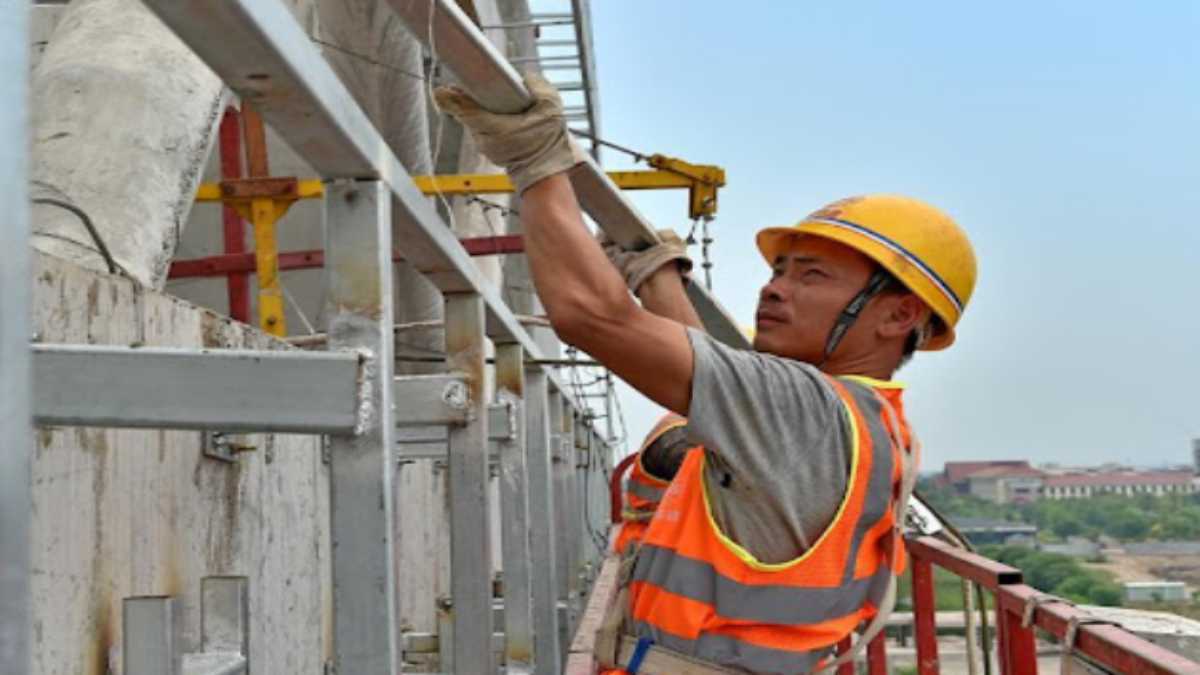Introduction
In the dynamic world of construction, builders work encompasses a broad spectrum of tasks that form the foundation of any building project. From initial site preparation to the final touches, understanding the scope and significance of builders work is crucial for contractors, project managers, and stakeholders aiming for successful project delivery.
What Is Builders Work?
Builders work refers to the essential construction activities that support the structural integrity and functionality of a building. These tasks include:
-
Site Preparation: Clearing land, excavation, and setting up temporary facilities.
-
Structural Work: Erecting walls, floors, and roofs.
-
Systems Installation: Plumbing, electrical, and HVAC systems.
-
Finishing Touches: Plastering, painting, and installing fixtures.
Each of these components plays a vital role in ensuring the building meets safety standards and client expectations.
The Importance of Builders Work in Construction Projects
Builders work is the backbone of any construction project. Without meticulous planning and execution of these tasks, projects can face delays, budget overruns, and safety issues. Proper coordination among various trades involved in builders work ensures that each phase transitions smoothly to the next, maintaining the project’s overall timeline and quality.
Key Components of Builders Work
1. Site Preparation
Before construction begins, the site must be prepared. This involves:
-
Clearing Debris: Removing trees, rocks, and existing structures.
-
Excavation: Digging trenches for foundations and utilities.
-
Setting Up Temporary Facilities: Establishing access roads, storage areas, and worker accommodations.
Proper site preparation lays the groundwork for all subsequent construction activities.
2. Structural Work
The core structure of the building is constructed during this phase:
-
Foundation: Pouring concrete footings and slabs.
-
Superstructure: Erecting load-bearing walls, columns, and beams.
-
Roofing: Installing trusses and roofing materials.
This phase ensures the building’s stability and ability to withstand loads and environmental factors.
3. Systems Installation
Integrating essential systems is crucial for a building’s functionality:
-
Plumbing: Installing water supply and drainage systems.
-
Electrical: Wiring for lighting, power outlets, and equipment.
-
HVAC: Setting up heating, ventilation, and air conditioning systems.
These systems must be installed according to codes and standards to ensure safety and efficiency.
4. Finishing Touches
The final phase involves enhancing the building’s aesthetics and usability:
-
Plastering and Painting: Smoothing surfaces and applying finishes.
-
Flooring: Installing tiles, carpets, or hardwood floors.
-
Fixtures and Fittings: Placing cabinets, lighting fixtures, and hardware.
These tasks contribute to the building’s appearance and user experience.
Coordination Among Trades
Effective coordination is essential for the seamless execution of builders work. Overlapping tasks, such as plumbing and electrical installations, require careful scheduling to prevent conflicts and delays. Clear communication among contractors, subcontractors, and project managers ensures that each trade completes its work on time and to the required standards.
Safety Considerations in Builders Work
Construction sites are inherently hazardous. Builders work must adhere to stringent safety protocols to protect workers and the public. Key safety measures include:
-
Personal Protective Equipment (PPE): Helmets, gloves, and safety boots.
-
Fall Protection: Guardrails, safety nets, and harnesses.
-
Hazardous Material Handling: Safe storage and disposal of chemicals and waste.
Regular safety training and adherence to Occupational Safety and Health Administration (OSHA) guidelines are vital.
Environmental Impact and Sustainability
Builders work also encompasses sustainable practices to minimize environmental impact:
-
Waste Management: Reducing, reusing, and recycling construction materials.
-
Energy Efficiency: Implementing designs and systems that reduce energy consumption.
-
Sustainable Materials: Using eco-friendly and locally sourced materials.
Incorporating these practices not only benefits the environment but can also lead to cost savings and regulatory compliance.
Trends Shaping Builders Work in 2025
The construction industry is evolving, with several trends influencing builders work:
-
Modular Construction: Prefabricated components are assembled on-site, reducing construction time and waste.
-
Digital Tools: Building Information Modeling (BIM) and project management software enhance planning and coordination.
-
Skilled Labor Shortage: There’s a growing emphasis on training and retaining skilled workers to meet demand.
Adapting to these trends is essential for staying competitive and efficient in the industry.
Conclusion
Builders work is a multifaceted and integral part of the construction process. Understanding its components, importance, and the need for coordination and safety can lead to more successful and sustainable construction projects. By staying informed about industry trends and best practices, contractors and stakeholders can navigate the complexities of builders work effectively.
Frequently Asked Questions (FAQs)
1. What is the difference between builders work and finishing work?
Builders work encompasses structural and essential systems installation, while finishing work focuses on aesthetic and functional details like painting and flooring.
2. How do I ensure safety during builders work?
Implementing safety protocols, providing PPE, and conducting regular training sessions are crucial for maintaining a safe construction site.
3. What are the benefits of modular construction?
Modular construction offers reduced build times, lower costs, and less material waste, contributing to more efficient projects.
4. How can I manage waste effectively on-site?
Implementing a waste management plan that includes sorting, recycling, and proper disposal can minimize environmental impact.
5. Why is coordination among trades important?
Effective coordination prevents delays, reduces errors, and ensures that each phase of construction proceeds smoothly.
6. What role does technology play in builders work?
Technology, such as BIM and project management software, enhances planning, coordination, and execution of builders work.
